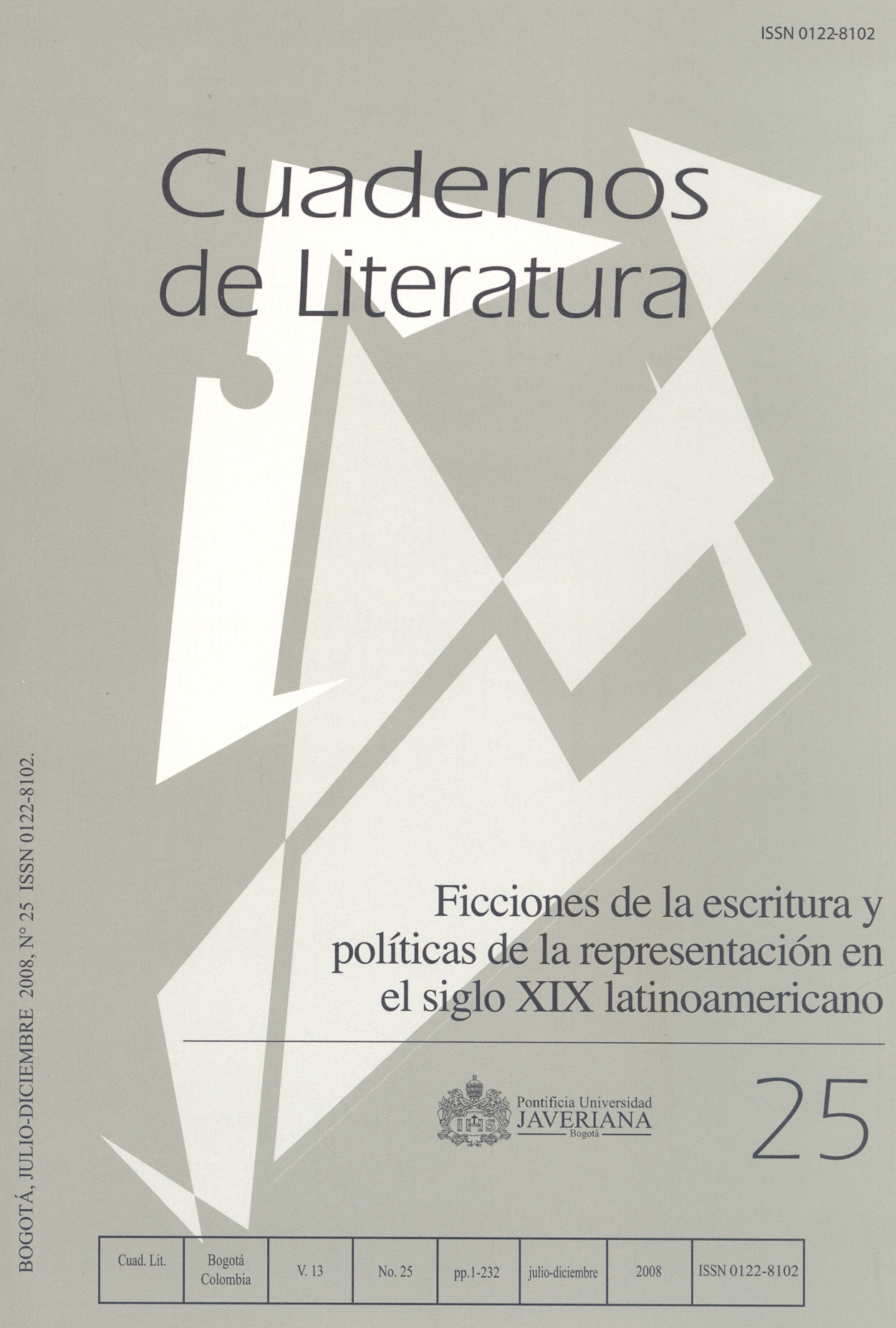Abstract
En este trabajo se reconstruye el debate sobre caridad, género y asistencialismo social, que tuvo lugar en el Perú republicano durante la segunda mitad del siglo XlX. Pese a que la caridad ha sido leída desde el marxismo como una práctica conservadora usada por las clases altas en América Larina desde la época colonial, para defender un status quo marcado por la injusticia social, se demuestra que, leyendo la beneficencia desde una perspectiva sexo-genérica, ésta tuvo consecuencias radicales para la incipiente profesionalización del ángel del hogar. Trabajando con un archivo cultural, que incluye escritoras poco conocidas como Juana Rosa de Amézaga, Lastenia Larriva de Llona y Juan Manuel Gónzalez Prada y Abelardo Gamarra, se demuestra que la caridad fue un discurso ideológicamente hibrido al que diferentes grupos apelaron durante la época de la secularización para debatir cuestiones referentes a la formación de identidades.Cuadernos de Literatura is registered under a Creative Commons Attribution 4.0 International Public License. Thus, this work may be reproduced, distributed, and publicly shared in digital format, as long as the names of the authors and Pontificia Universidad Javeriana are acknowledged. Others are allowed to quote, adapt, transform, auto-archive, republish, and create based on this material, for any purpose (even commercial ones), provided the authorship is duly acknowledged, a link to the original work is provided, and it is specified if changes have been made. Pontificia Universidad Javeriana does not hold the rights of published works and the authors are solely responsible for the contents of their works; they keep the moral, intellectual, privacy, and publicity rights.
Approving the intervention of the work (review, copy-editing, translation, layout) and the following outreach, are granted through an use license and not through an assignment of rights. This means the journal and Pontificia Universidad Javeriana cannot be held responsible for any ethical malpractice by the authors. As a consequence of the protection granted by the use license, the journal is not required to publish recantations or modify information already published, unless the errata stems from the editorial management process. Publishing contents in this journal does not generate royalties for contributors.


